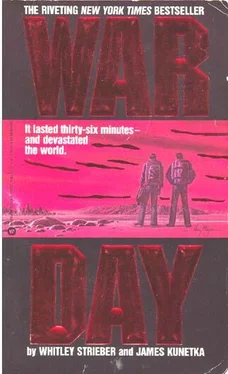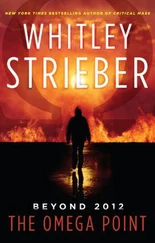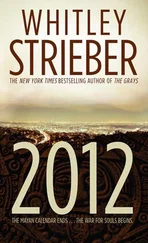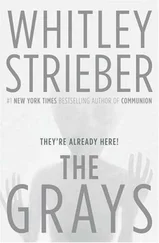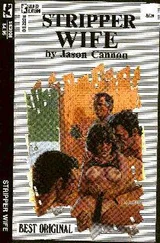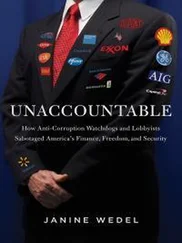Anne has given me a breakfast of eggs and a glass of goat’s milk. Our eggs are small and brown, from our own bantam hens.
Good town birds. The goat’s milk is from the Perrys, across the street. Their son Robert keeps three goats. On the table there are hard, tart grapes from our arbor.
Anne sits across from me, her chin in her hands. Though she is only forty-six, her hair is white and as soft as down. There is about her face a nervous look that is new. It comes, perhaps, from the difficulty she has believing that our life will remain as tolerable as it has recently become. But there is also hardness in that look, a kind of determination that has developed over the years. You can see it in her eyes, a sort of flintiness. We have been married for twenty-three years and we know that our remaining time together is quite limited, and so she sees my journey as a family tragedy. But she understands my motives. I was a writer for many years, and I did not voluntarily give that up.
Anne will not stop me from doing something of real value with my skill.
“I’m going to miss you,” I say. She smiles, tight-lipped. “I’ll write,” I add. Her hand comes up, touches my face. “I’ll be back as soon as I can.”
Loving and being loved is the great thing, I think. My love for Anne is as much a part of me as my eyes or my voice. For the first time in perhaps ten years, I will not tonight sleep in the same bed as she. After all we have been through to get to this peaceful corner of the world, it seems almost a travesty to leave her bed, no matter what the reason.
Andrew comes in, his eyes alight, his hands and T-shirt smeared with grease. He is really an artist with machines, my son, and he has kept our ancient Dodge in superb order since we bought it in ’90. It is a ’75 model with a beautiful old-fashioned electric ignition of the type that survived EMP. More modern cars, with them electronic ignitions and microchip-controlled carburetion systems, were rendered inoperable. Jim says that there was an AP wire story to the effect that fourteen million electronic ignitions were destroyed on Warday. Since Warday, an average of a million replacements have been made each year. At this rate, close to half of the disabled cars will have been ruined by weathering long before they get new ignitions.
Our precious Dodge cost us twelve gold dollars, a sum it took me two years to raise. But it runs, and the highways aren’t crowded, and sometimes in the dead of the night one or the other of us has the trapped dream, and then we like to get in it and drive westward, toward cleaner land, along the dark, empty Interstate.
I am leaving the car behind. It is too expensive and difficult to journey by private vehicle.
“You’ve got a dozen hardboiled eggs in your backpack,” Anne says. “It’s all I could get out of the banties.”
“It’s a lot.”
“I made some bread.” She hands me a loaf, and my heart almost breaks. Flour is hard to get these days, and she must have hoarded this carefully. It’s quite a surprise.
“What a nice gift. I had no idea.”
“Just remember that there’s more where that came from.”
All her life, Anne’s been insecure about her ability to keep me.
But it is I who should worry. I feel she is a better wife than I am a husband. We kiss and she is fervent. Her fingers are linked at the back of my neck. “I love you so,” I whisper into the soft white hair.
We stop at last.
I take the bread and put it in my backpack.
Andrew has washed his hands and sat down at the table. He is a tall, rangy thirteen-year-old. His memories of prewar America are fading, and I regret that. On Warday he was six weeks away from his ninth birthday. He remembers New York chiefly as a place where you could get a chocolate-chip cookie or a danish at Cake Masters whenever you wanted it. I know that this is an awfully small memory of that glorious place, but so far I have been unable to discuss with him the true nature of our loss. That city was part of my soul. Despite its size, its loss seems a deeply personal thing. I did not lose the towers but the view of them from the roof of my building, not the museums but my own personal experience of the great works there, the paintings that were looted from Manhattan museums or rotted there, and the ones that burned in Brooklyn.
I felt comfortable working in New York. I wrote all my prewar novels there. My films were set there.
How anachronistic those books seem now, those light entertainments that were my life’s work in the last days of the old world.
I was rich in New York, and there also I knew the shuddering poverty of starting out. I find, though, that my memories return to it less and less often now. As I grow older, my mind jumps back further, to the San Antonio of the 1950s and 1960s, in the fine days of my boyhood.
Andrew is looking at me. Our eyes meet. For a moment he is grave, his face full of unexpected tension. “Good luck, Dad,” he says. We have talked at length about my journey, and he approves.
He also knows the risks. “I’ll take care of Mom,” he says. “I can do it.” I believe that. At the age of ten, this young man kept his head about him when he was starving. He organized midnight forages to abandoned warehouses, learned at the library how to recognize edible plants, and never spoke a word of complaint through all those terrible months. At twelve he helped on a disinfecting crew during the flu, then faced that disease himself, and lay in this very house between life and death. “What happens, happens” he said then. “I know that God’ll keep me.” He has seen the dead stacked in heaps, being dealt with by bulldozers and lime; he has lost friends many times, and seen this neighborhood all but emptied, then refilled again by people more like us than the original residents who had been here before the war. Our newer neighbors are leather-hard.
I reached my maturity in a world of electronic ease. Andrew remembers my Apple and our RCA TV, but he is saving for a radio and eagerly awaiting the day we get listed for a Japanese computer. He has it all picked out: an Epson 221 with so-called artificial intelligence. But he has little concept of the electronic village. When he wants to reach a friend, he is more likely to write a letter than to try to telephone. It isn’t that Andrew is totally deprived of the advantages of electronics now, but that they were unknown to him during his most impressionable years. Until this year he has experienced telephones as bulky, unreliable things. Before the war, we placed what now seems a fantastic level of reliance on the most fragile electronic webbing.
I think of the Japanese. Even their immense productive capacity has not been enough to rewire the United States.
There is a sound of footsteps outside, and Jim Kunetka comes in the back door. He is blade-thin, smiling, looking rather haggard.
When I ask if he slept last night, he only smiles more. Anne gives him oatmeal and grapes, and he eats eagerly. He has been my friend since we were children. Lately he has been working as a journalist, while I have gone into microfarming and indoor garden design. I can build you a hydroponic garden sufficient to supply a family of four with vegetables year-round, and locate it indoors so you don’t have to worry about fallout or residual buildup. Before the war I was a middle-range novelist. We were happy and fat then. My horror stories were successful, because happy people crave the luxury of artificial fear. I wouldn’t write one now—the very idea is loathsome. (Although, I must admit, I’ve begun to get a trickle of royalties from Europe and Japan. It is strange to see the computer printouts from my British agent, like ghostly documents from a world that is gone.)
“Our appointment is at eight-thirty,” Jim says in his most brisk manner.
Читать дальше
